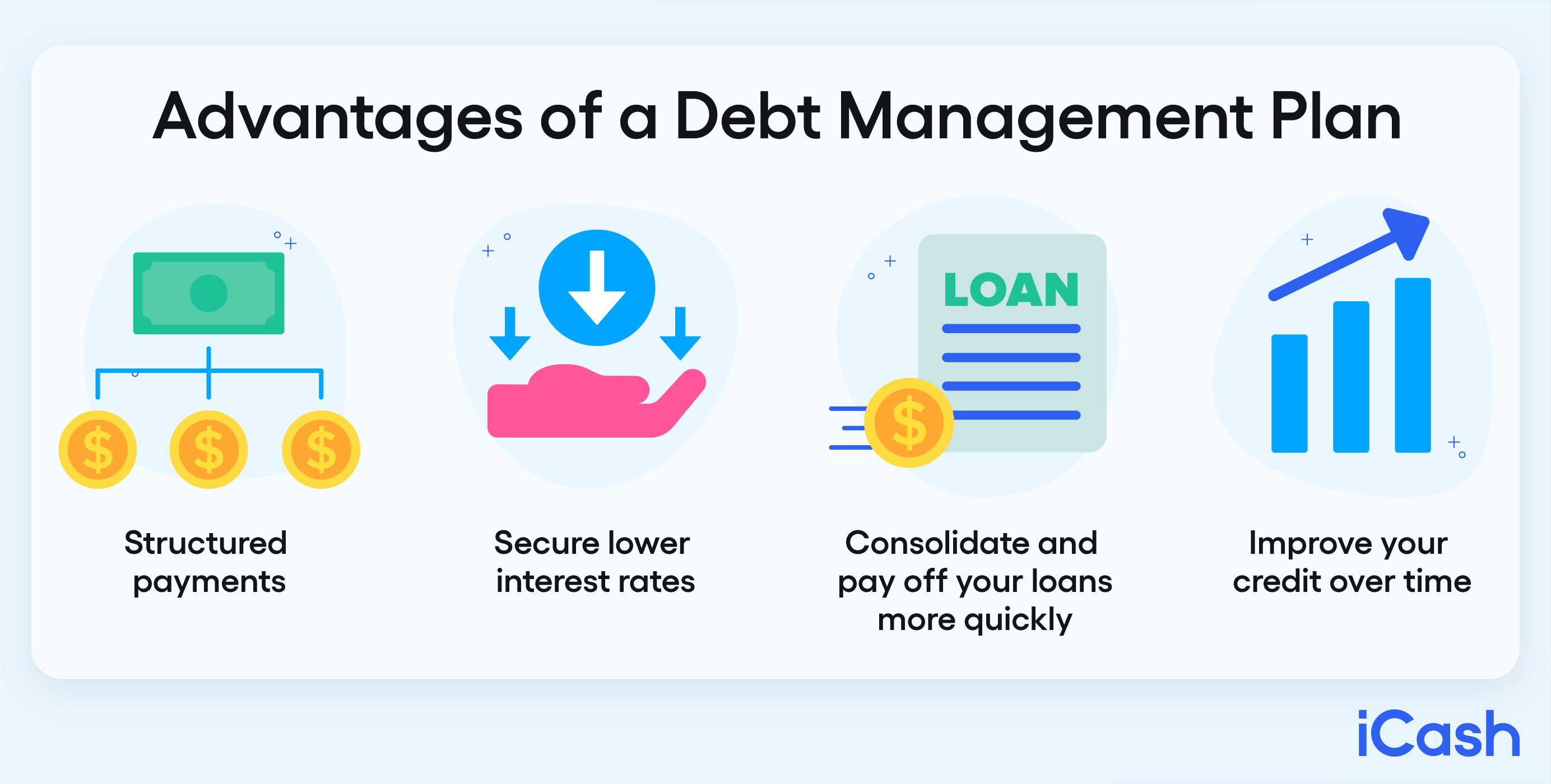Maximize Your Financial Potential with Professional Debt Management Plan Services
Expert Tips and Methods for Carrying Out an Effective Financial Obligation Administration Plan
When it comes to navigating the intricacies of debt management, having a well-balanced strategy is crucial for accomplishing financial stability. From evaluating your existing monetary standing to bargaining with creditors, each step plays a crucial role in forming an effective financial obligation management strategy.
Assessing Your Present Financial Situation
Prior to getting started on a debt administration plan, it is vital to extensively review your present monetary standing. Comprehending your economic scenario is the foundational action towards effectively taking care of and decreasing your debt. Begin by putting together a detailed listing of all your financial obligations, including outstanding equilibriums, rates of interest, and minimal regular monthly repayments. This will give a clear review of the level of your economic commitments. Additionally, examine your income sources and month-to-month costs to establish your non reusable revenue offered for financial obligation settlement.

Developing a Realistic Budget Plan
Understanding your existing monetary circumstance lays the foundation for creating a reasonable budget that straightens with your financial obligation management objectives and monetary abilities. When producing a budget, it's essential to properly track your earnings, expenses, and financial obligation obligations. By classifying your costs, you can identify locations where you might need to reduce back to free up funds for debt settlement.

Prioritizing and Tackling Financial Obligations
To properly regain control of your finances and work in the direction of financial stability, prioritizing and tackling your debts is a critical action in your financial obligation monitoring strategy. Recognize high-interest financial debts that are costing you the most cash and focus on paying them off.
After determining your high-interest financial obligations, think about utilizing techniques like the debt snowball or financial debt avalanche approach to pay them off methodically. The financial debt snowball technique includes paying off the tiniest financial obligations first, while the debt avalanche method prioritizes debts with the highest rates of interest. Pick the approach that lines up best with your monetary goals and encourages you to keep making development.
Additionally, think about working out with creditors for lower interest prices or establishing up a layaway plan if you're having a hard time to satisfy your current obligations. Looking for aid from a credit scores therapist or economic advisor can also supply valuable insights and support on how to efficiently tackle your debts - debt management plan services. By focusing on and resolving your debts strategically, you can lead the way towards a debt-free future and improved economic health
Negotiating With Lenders
When involving in financial obligation management, discussing with financial institutions is a crucial step in the direction of discovering equally beneficial services for financial obligation payment. Open interaction with lenders can cause modified settlement strategies, lowered rate of interest, and even negotiation deals. Prior to launching negotiations, it is vital to have a clear understanding of your financial situation, including your income, expenses, and the overall quantity of financial obligation owed. This info will certainly not just aid you make practical offers however also demonstrate to creditors that you are committed visit this site right here to resolving the debt.

Building Healthy And Balanced Monetary Behaviors
Integrating regular budgeting methods is essential for cultivating healthy and balanced monetary practices. Budgeting permits individuals to track their earnings and expenditures, allowing them to make educated choices regarding their economic priorities. Setting details financial objectives, such as conserving for emergencies browse around this site or retirement, can supply a clear roadmap for managing money properly.
Another secret facet of building healthy and balanced economic habits is living within one's ways. This includes investing much less than what is gained and avoiding unnecessary financial obligation. Identifying and taking on an economical attitude in between wants and needs can aid individuals make more prudent spending options.
On a regular basis keeping track of and examining monetary statements credit reports are essential practices that promote financial awareness and obligation. By staying informed concerning their financial standing, individuals can determine prospective problems at an early stage and take positive steps to resolve them.
Additionally, developing a financial savings habit, despite having percentages, can add significantly to long-lasting economic safety and security. Saving on a regular basis not just constructs a monetary padding for unforeseen costs however also cultivates a feeling of self-control and duty in the direction of finance. By regularly exercising these routines, individuals can lay a solid foundation for a steady financial future.
Final Thought
To conclude, applying a successful financial debt administration strategy needs a thorough evaluation of one's a knockout post financial scenario, the development of a sensible budget, focusing on and tackling financial obligations, negotiating with financial institutions, and building healthy economic practices (debt management plan services). By adhering to these professional pointers and techniques, people can take control of their finances and job in the direction of achieving economic stability and flexibility from financial debt
Comprehending your current monetary situation lays the foundation for creating a reasonable spending plan that lines up with your financial debt management objectives and financial capabilities.To efficiently regain control of your financial resources and job towards economic security, prioritizing and tackling your financial obligations is an important action in your financial debt management plan.After recognizing your high-interest financial obligations, consider utilizing approaches like the financial obligation snowball or financial obligation avalanche approach to pay them off methodically. The financial debt snowball method includes paying off the smallest financial debts initially, while the financial debt avalanche approach focuses on financial debts with the highest possible passion prices.When involving in financial debt monitoring, working out with creditors is a vital step towards finding mutually useful options for financial debt settlement.